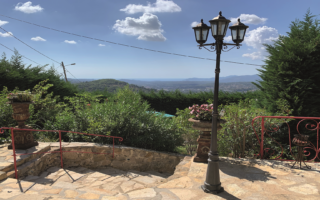Family matters
Is the French family we all remember from our school textbooks still recognisable today? Kate McNally looks at the changing role of la famille in France
Although the traditional role of the family in everyday French life is changing, family ties remain strong. The family nucleus takes priority and socialising primarily revolves around close family members, far more so than in the UK where friends are unquestionably higher up the pecking order.
The tight family unit is more evident in rural France where it is common to find four generations of a family living in the same village, as well as numerous aunts, uncles and cousins. This paradigm of tribal bliss is increasingly breaking up, however, with younger generations moving further afield to work, either through choice or necessity. Even so, the wanderers’ will stay in regular contact with the family back home with a minimum weekly telephone call and visits in most of the holiday periods – especially if there are grandchildren in the equation. The chances are that many will also return years later to spend their retirement in their home town or village thanks to France’s strict inheritance laws which dictate that family homes must be left to the offspring of deceased parents.
The extended family is still very much alive and kicking in France. As in the UK, grandparents are increasingly filling in for absent working parents, collecting younger children from school if they live nearby and taking them away during the school holidays, either on holiday or to the family house in the country or by the sea. There is a respect among the current generation of parents for the traditions of their elders and they welcome the input of grandparents in passing these on down to their own children.
French people have a definite pride in inin in their place of origin – whether it’s the regional food or local customs – and this passion is passed on to their offspring, no doubt partly through education but also through experience as the children are likely to spend a large chunk of their childhood visiting the locality even if they aren’t brought up there.
Bee Willey from Ipswich is half French and spent several years of her childhood in France. “There is a genuine nostalgia for the roots of the particular part of France that your family is from. It seems to go hand-in-hand with the region’s gastronomic specialities because French people’s approach to food takes on a global traditional perspective.”
Dramatic declineAs in the UK, the traditional’ view of family life – that of father working, mother raising the children, grandparents and siblings around the corner – has undergone dramatic decline in France in the past 50 years. Recent figures show that around 60% of mothers with children under 16 have a job, albeit the majority part-time. France has an enviable childcare system. It is provided free in the maternelle section of most primary schools from the age of three, or from two years old in some areas.
And before entry into the state maternelle set-up, childcare is markedly cheaper and more accessible than in many other leading European countries. For example, the level of formal childcare provision in France is around 45%, compared to just over 20% in Germany. Nicolas Sarkozy is proposing a shake-up in the system to bring it more in line with the UK, whereby children will start their formal school education at five years old and parents will pay for private childcare up until school entry. With the education professionals opposed to the proposals however, it remains to be seen whether or not they will be pushed through.
Despite favourable childcare conditions, the percentage of working mothers in France is lower than the average of the Organisation for Economic Co-operation and Development (OECD) member countries. This may suggest that French mothers are more inclined to take up the role of stay-at-home mum if they can afford to. In general, they are very hands-on and are still most likely to undertake the principal child-raising tasks, such as ensuring homework is carried out, taking children to extra-curricular activities and, of course, orchestrating an excellent French diet. Even children with busy, working parents will sit down to a family meal most evenings which inevitably helps to strengthen family relations and, in turn, sustain the continued importance of family in society.
The statistics for working mothers could also be slanted by the numbers that give up work altogether after producing a third child. State child benefit increases significantly after the birth of the third child – it is currently €123.92 (�101.79) per month for two children plus a further €158.78 (�130.43) per month for each additional child. This is by no means a huge amount of money but it could be the difference that helps a mother juggling the needs of several children with a demanding job to decide she wants to concentrate on the home. It is worth noting, however, that the average number of children per family is now two.
Equally, there is the Wednesday factor in France. There is no school on a Wednesday which means full-time working parents of school-age children, living away from the extended family, have to find a childcare solution for a whole day in the week.
“My brother and his wife both work long hours. They have to find childcare after school – which isn’t easy as they have to be collected from different schools – and for Wednesdays. French people are also less likely to ask friends to help with school runs etc,” explains Bee.
Role modelsThe interesting dichotomy in the changing aspect of the family role in France at the moment is that while it is moving to a more English, or Anglo Saxon, model of fragmentation, French people have not developed a substitute support system through friendships, as in the UK. Most good friends will be those made in childhood (usually living elsewhere) and post-marriage and couples will rarely socialise individually but rather will befriend other couples. Either way, forming a friendship will generally be a longer process.
“French people seem to stay more formal with each other for longer and I don’t think that, even once established as friends, people drop by or ring up with the same casualness as in the UK,” says Bee.
Another change in the family setup in recent decades is the rise of the single parent family in France, as in many parts of the world. The number of young unmarried mothers is low, however. Marriage or relationship break-down accounts for most single parents and, in the majority of cases, both parents maintain their roles in raising their children, albeit in different households.
Marriage is also on the wane in France, as in many European countries, with many couples preferring to opt for civil recognition of their partnership – Pacte Civil de Solidarit�, or PACS as it’s known in France – which gives them the same status in terms of tax and inheritance as married couples.
The uptake of the PACS, initially introduced for gay couples, is particularly high among heterosexuals in France because it provides additional protection for both members regarding jointly owned goods should one of the partners die. For example, if an unmarried, unPACSed couple buy a house together and one dies leaving the house to the other, the surviving partner would have to pay 60% of the value of the inherited half to the state in tax because it would be considered a gift.
Paternal influenceFathers generally have a strong emotional bond with their children as they spend most of their spare time with them due to the French culture of socialising principally with immediate and extended family. When at home they are equally as likely as mothers to tend to the needs of their children, apart from meal times when in most households the mother will take over. As for the overall childcare responsibility, this continues to remain with the mother. Figures indicate that around 40% of mothers have their careers interrupted or affected on a long-term basis following the birth of a child as opposed to just 6% of dads.
The other factor that helps to make family life in France more communal is the child-friendly approach evident in most areas of society. Restaurants, even posh ones, welcome children and happily tolerate a certain level of noise. That said, most French children are well-behaved at the table from a young age because they are used to sitting down to eat with their elders.
In banks, shops and even churches, there are no impatient tut-tuts or stony stares if a child misbehaves slightly. And the older generations – often the quickest in the UK to revert to the children should be seen and not heard’ ethos of their upbringing should a child demand too much attention – are usually the first in France to excuse noisy or boisterous behaviour pointing out with the wisdom of age and the candour of the French, “c’est normale, c’est un enfant”.
So, while the role of French family life is inevitably cha9nging to meet modern demands, it is fair to say that French people continue to have a more Mediterranean approach to family, whereby it still takes precedence in everyday life and still provides the most important relationship bonds.
Share to: Facebook Twitter LinkedIn Email


